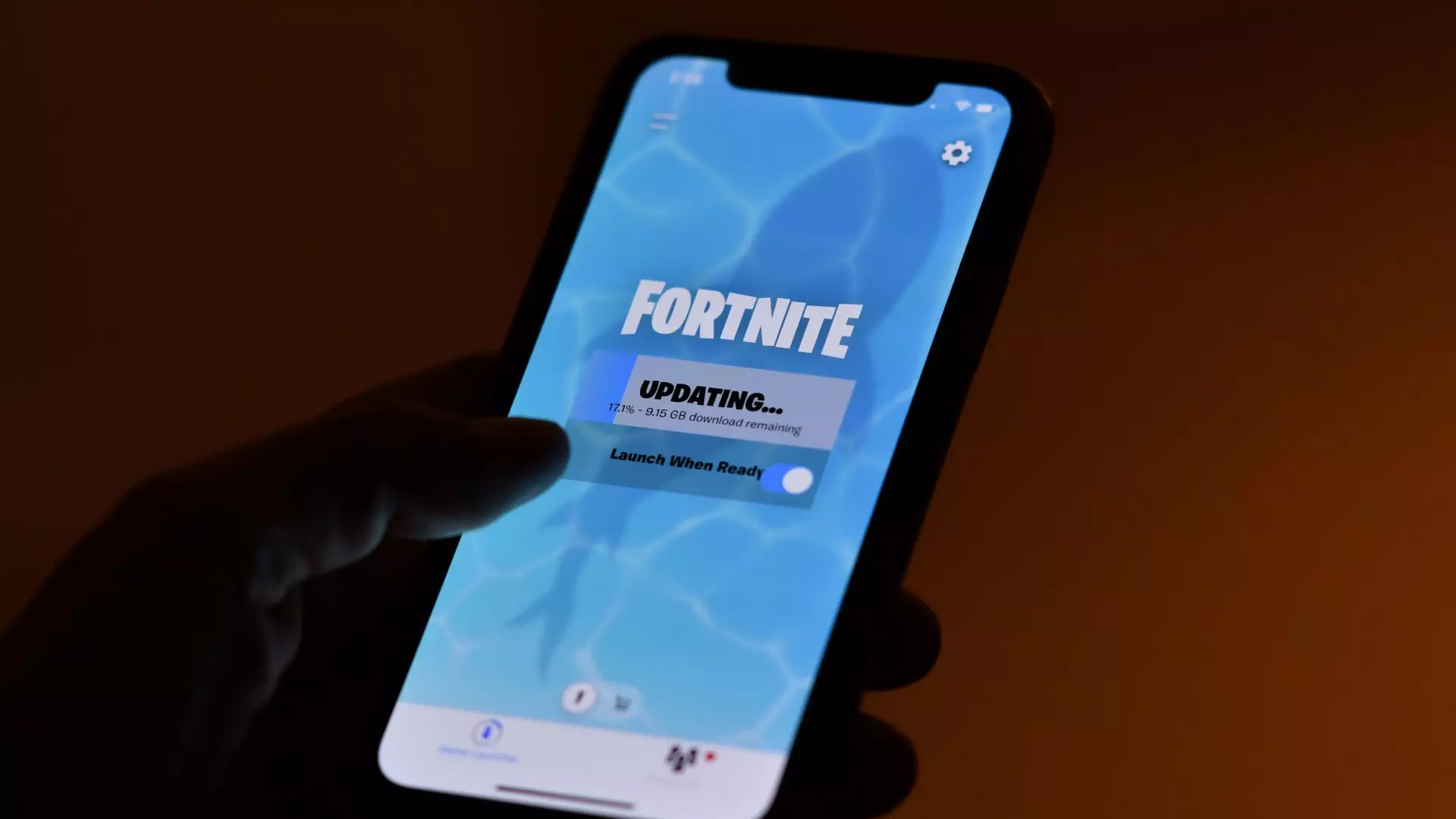The ongoing legal battle between Apple and Epic Games is not merely a corporate feud; it encapsulates a monumental struggle between innovation and the monopolistic practices that stifle it. As the recent developments unfold in U.S. District Judge Yvonne Gonzalez Rogers’ courtroom, it becomes painfully clear that Apple’s attempts to stifle competition under the guise of upholding ecosystem security are not just wrong-headed but perilous for its reputation. Judge Rogers has signaled that Apple must resolve its issues concerning the popular game Fortnite, or risk further legal complications, thereby underscoring the urgent need for the tech giant to adapt its policies to reflect the evolving landscape of digital commerce.
The Courtroom as a Battleground for Fairness
Many view these standoffs as legal skirmishes, yet they are, in truth, battles for fairness in the marketplace. Epic Games’ return to court reflects a refusal to back down in the face of Apple’s heavy-handed tactics. As per the judge’s order, it is Apple’s obligation to provide a legal justification for its refusal to restore Fortnite on the iOS App Store. To simply ignore this directive—an act that resonates painfully with consumers who believe in fair market practices—would be to wield corporate power in a manner that upholds a status quo detrimental to both developers and users alike.
Tim Sweeney, CEO of Epic Games, made it abundantly clear that Apple’s response to their recent submission was cowardly. The intention to sidestep the issue until the Ninth Circuit rules betrays a reluctance to engage in open competition. This behavior validates the concerns of many who argue that Apple’s approach is not about ensuring user experience but about maintaining a fortress around its digital ecosystem at any cost.
The Unchecked Power of Corporate Giants
The implications of this prolonged legal scuffle extend beyond Fortnite, as the ripple effects may dictate the future of app development itself. Apple’s initial decision to remove Fortnite from its app store in 2020 was a watershed moment, igniting widespread debates on digital rights. Not only did it raise questions about how companies allocate power in the digital ecosystem, but it illustrated the incumbent threat that behemoths pose to innovation. In a society increasingly reliant on technological solutions, one must wonder how many of the innovative ideas can see daylight when weighed down by a behemoth’s bureaucratic process.
The fact that Apple could remove Epic’s account following a simple rule violation flies in the face of transparent business practices. It is emblematic of an environment where the little guy stands little chance against a corporate giant that operates with few restrictions.
The Stakes: Legal Precedents and Consumer Choice
The stakes are genuinely consequential; what happens in this courtroom could set a precedent not only for the relationship between developers and app stores but for consumer choice altogether. If the judge is forced to impose repercussions on Apple, it could take us one step closer to a more equitable app ecosystem, where users have genuine freedom to choose how they engage with digital products. Conversely, if Apple continues to sidestep the judiciary, it establishes a dangerous precedent where large corporations operate with impunity.
Moreover, the backlash against monopolistic behavior aligns with a growing consumer sentiment that a singular corporate entity should not dictate how millions interact with technology. The recent re-submissions by companies like Spotify and Amazon Kindle underline an important fact: there is a mounting push for reform in how platforms operate, and consumers are vocal in their demand for this transformation.
In an era where digital interaction has become foundational to human connection and commerce, Apple’s legal maneuvering feels less like a commitment to quality and more like a desperate bid to hold onto power. Many are left questioning whether the advantages of the Apple ecosystem outweigh the greater good of fair competition. The resolution of this feud carries consequences that will inform not only how apps can coexist within the Apple ecosystem—if at all—but also how consumers will interact with these digital environments long into the future.

Leave a Reply